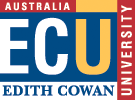COURSE INFORMATION
Disclaimer
This course information may be updated and amended immediately prior to semester. To ensure you have the correct outline, please check it again at the beginning of semester.
| B40 Bachelor of Science (Communication and Information Technology) | |||||||||||||||||||||||||||||||||||||||||||||||||||||||||||||||||||||||||||||||||||||||||||||||||||||||||||||||||||||||||||||||||||||||||||||||||||||||||
Bachelor of Science
The Faculty of Computing, Health and Science offers a general Bachelor of Science with a wide range of discipline concentrations and a number of more specialised Bachelor of Science courses providing specifically identified major studies.
Requirements for each of the specific awards offered in the School of Computer and Information Science are detailed below.
The more flexible award is described earlier in the Handbook.
INTRODUCTION This is a three year full-time (or part-time equivalent) program leading to a Bachelor of Science degree.
The Bachelor of Science (Communication and Information Technology) combines a core program, designed to familiarise students with the use of information technology in a range of settings, with a variety of Minor Studies. Graduates will apply their knowledge to the implementation, operation and management of new information technologies in the workplace and find employment in a wide range of IT related roles in industry and government.
Students will become familiar with developments in information technology, communications networks, information security and data management systems. The program provides opportunities for students to apply their expertise in information technology to practical problems in their chosen field of study. The course is accredited at professional level with the Australian Computer Society allowing graduates to apply for ACS professional membership.
For those interested in continuing to higher degree studies, the course provides an excellent introduction to studies in management, administration, library science or a range of computer related fields.
COURSE LOCATION AND MODE OF STUDY The course is available by full-time or part-time study on Mount Lawley campus.
COURSE STRUCTURE The Bachelor of Science (Communication and Information Technology) is a 24 unit course with a sixteen unit major, a six unit minor and two elective units.
Students undertaking the Communication and Information Technology degree complete the following program:
|
|||||||||||||||||||||||||||||||||||||||||||||||||||||||||||||||||||||||||||||||||||||||||||||||||||||||||||||||||||||||||||||||||||||||||||||||||||||||||
| |||||||||||||||||||||||||||||||||||||||||||||||||||||||||||||||||||||||||||||||||||||||||||||||||||||||||||||||||||||||||||||||||||||||||||||||||||||||||
Last Updated - Higher Education: 11/18/2004
